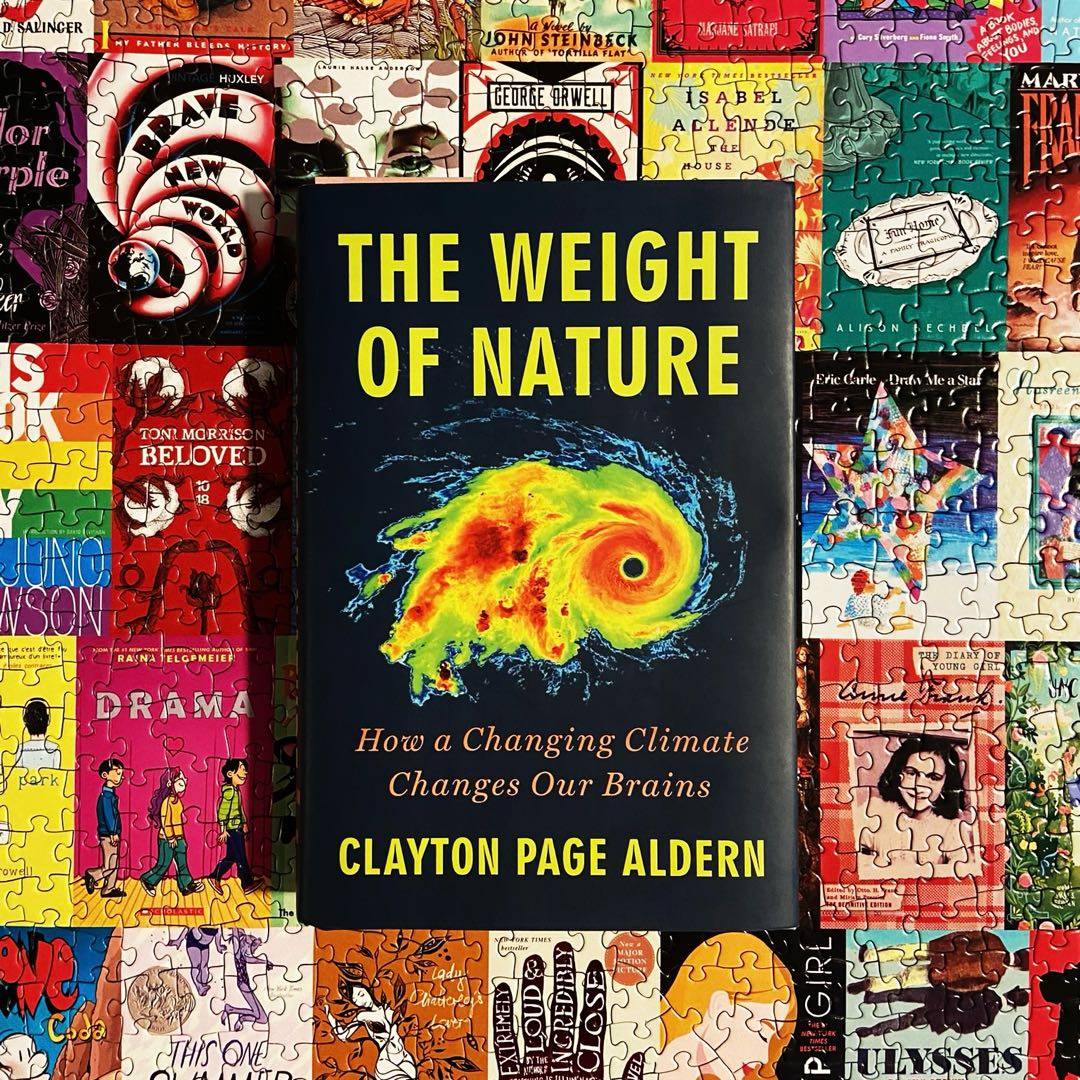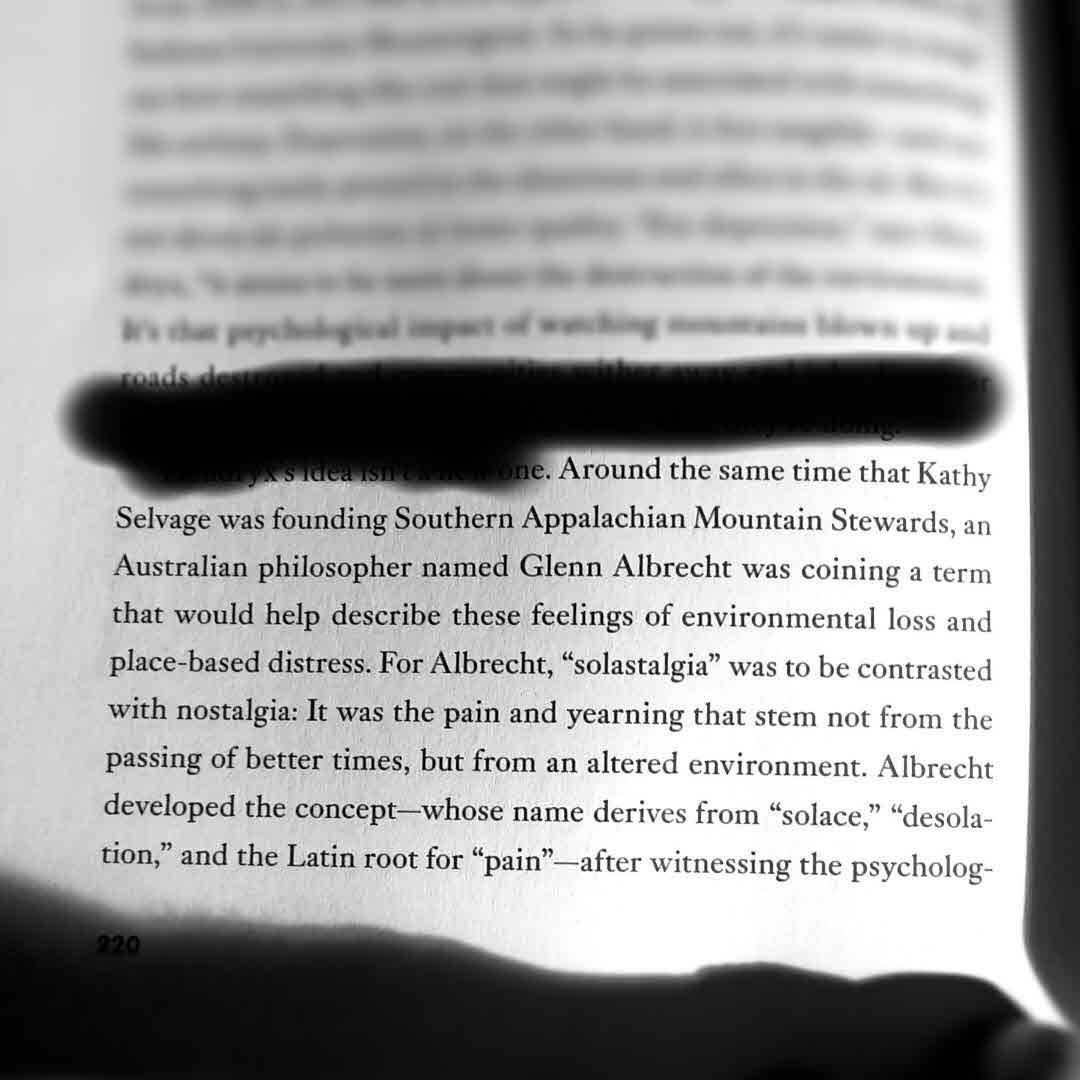
A neuroscientist turned journalist shares years of research about how climate change effects our brains. It‘s not good news, but it‘s a great book.

A neuroscientist turned journalist shares years of research about how climate change effects our brains. It‘s not good news, but it‘s a great book.

"Vocabulary is like this. New words give access to a precision of experience that old words do not."

...ical impacts of open-pit mining on local communities in New South Wales. Where surface mines go, solastalgia follows. Paige Cordial, a clinical psychologist in Southwest Virginia, explains the idea like this: "It's homesickness, but you haven't left home. You're homesick because the landscape has changed around you."
